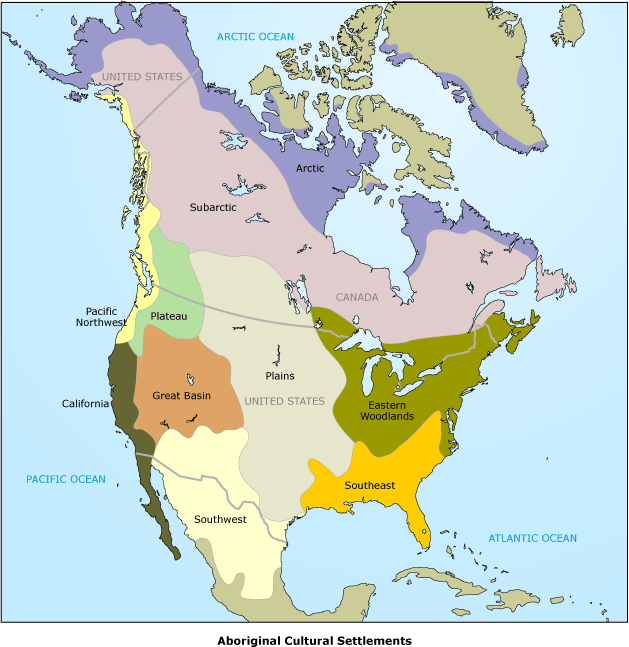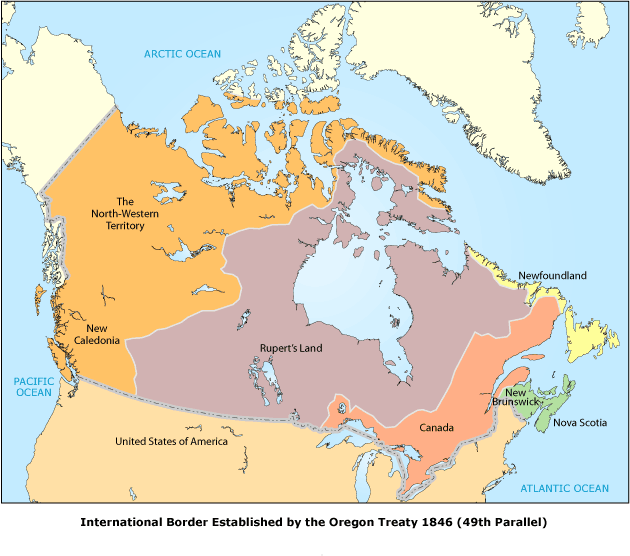To what extent should contemporary society respond to the legacies of historical globalization? Part B
To what extent should contemporary society respond to the legacies of historical globalization?
Consequences
What are the consequences of historical globalization on the lands, rights, and quality of life of Indigenous and non-Indigenous peoples?
European imperialism established European control over the Aboriginal peoples and territories in North America. The consequences of establishing global networks of trade can impact existing ways of life.
Think about how much of your identity is based on your geography, your cultural background, and your citizenship. For many Indigenous peoples, historical decisions about borders and citizenship had deep effects on their identities. Individuals were separated from groups that had long been connected by shared connections to the land and culture. The artificial borders often forced Indigenous peoples to declare an identity to the country or nation defined by the borders. Declarations of their identity as a member of a First Nation, an Inuk, or a Métis was often not accepted as legitimate by government officials.
As a North American example, the borders that distinguished the United States and Canada were negotiated and legally entrenched in government treaties and on maps in the nineteenth century. Often these arbitrary lines were drawn without consultation or regard for the cultural groups who had inhabited the territories long before the arrival of the Europeans to North America.
Compare the two maps. Examine how the Aboriginal cultural groups are divided by the 49th parallel.

Reflection
Discuss how borders define who you are and how you identify yourself. Imagine the borders of your neighbourhood were redrawn and you were no longer part of the province, city, or town you currently live in. Would you be willing to accept a new identity if a new border created change in your identity?